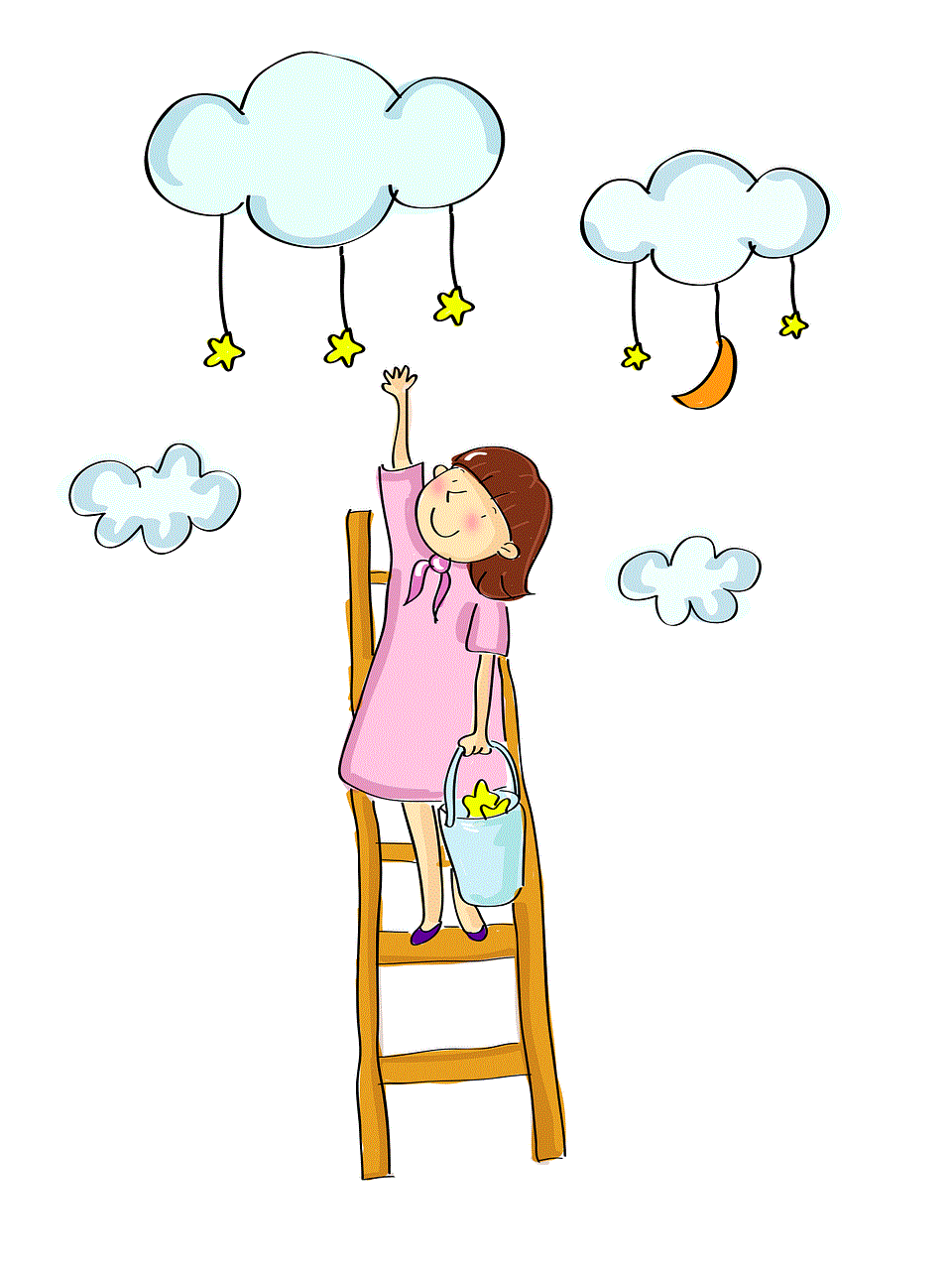screenshot facebook stories
facebook -parental-controls-guide”>Facebook has become one of the most popular social media platforms in the world, with over 2.8 billion active users as of 2021. With the rise of social media, the way we share and consume content has drastically changed. One of the most popular features on Facebook is the “Stories” feature, which allows users to share photos and videos that disappear after 24 hours. In recent years, the popularity of Facebook Stories has grown significantly, with more and more users taking advantage of this feature. In this article, we will explore the phenomenon of “screenshot Facebook Stories” and its impact on the platform and its users.
First, let’s delve into what exactly is a Facebook Story. Similar to the popular “Stories” feature on Snapchat , Facebook Stories allow users to share photos and videos that disappear after 24 hours. This feature was first introduced in 2017 and has since become a staple on the platform. Users can add filters, stickers, and text to their Stories, making them more fun and engaging. Additionally, Facebook Stories can be shared with a select group of friends or made public for all followers to see.
With the rise of this feature, it was only a matter of time before users started taking screenshots of their friends’ Stories. This trend has become increasingly popular, with many users wanting to save their favorite Stories before they disappear. However, this has raised concerns about privacy and consent. While Facebook does notify the user when someone takes a screenshot of their Story, it has sparked debates about whether this feature is ethical or not.
On one hand, some argue that taking a screenshot of someone’s Story is a violation of their privacy. The whole point of Stories is that they disappear after 24 hours, and taking a screenshot goes against that idea. Furthermore, some users may not want their content to be saved or shared without their consent. This raises the question of whether taking a screenshot of someone’s Story is a form of digital harassment or not.
On the other hand, some argue that taking a screenshot of a Story is no different from taking a screenshot of a regular post. In both cases, the content is shared with the public, and the user should be aware that it can be saved and shared by others. Additionally, taking a screenshot of a Story can often be seen as a form of appreciation for the content shared by the user. It can also serve as a way to remember a moment or event that was shared on the Story.
Regardless of the debate around the ethics of taking a screenshot of Facebook Stories, it has become a popular activity among users. This trend has also led to the rise of third-party apps and websites that allow users to save Stories without the user being notified. While these apps and websites may seem harmless, they raise concerns about the security and privacy of users’ content on the platform.
Moreover, the trend of screenshotting Stories has also affected the way users curate their content. Some users may feel pressure to create more aesthetically pleasing and “perfect” Stories, as they know that their content is likely to be saved and shared by others. This can create a sense of competition and comparison among users, which can have a negative impact on their mental health.
On the other hand, some users have embraced the trend and have used it to their advantage. Brands and influencers, in particular, have found ways to leverage this trend and increase their reach. By creating engaging and visually appealing Stories, they can attract more screenshots and reach a wider audience. This has also led to the rise of sponsored and paid Story content, as brands and influencers have realized the potential of this feature.
In addition to its impact on users, the trend of “screenshot Facebook Stories” has also had an impact on the platform itself. With more users taking screenshots of Stories, there has been an increase in engagement and activity on the platform. This is beneficial for Facebook, as it increases the time users spend on the platform, which in turn, can lead to more ad revenue.
However, this also means that Facebook Stories have become another platform for online bullying and harassment. With screenshots being shared without consent, users may feel vulnerable and exposed. This has become a concern for Facebook, as it works towards creating a safer and more positive environment for its users.
In conclusion, the trend of “screenshot Facebook Stories” has become a popular phenomenon on the platform. While it has raised concerns about privacy and consent, it has also had a significant impact on the way users share and consume content. As social media continues to evolve, it is important for platforms like Facebook to address these concerns and ensure the safety and privacy of its users. As for users, it is important to be mindful and respectful of others’ content and privacy, whether it is a regular post or a Story.
appslive com login page
The digital age has revolutionized the way we live, work, and play. In this fast-paced world, technology has become an integral part of our daily lives, making things more convenient and accessible. One of the most significant advancements in recent years is the development of mobile applications. These apps have transformed the way we interact with the world, providing us with instant access to information, entertainment, and services. One such app is Appslive, a popular platform that offers a wide range of apps for users to download. In this article, we will explore the Appslive login page and everything you need to know about it.
Appslive is a leading app store that provides users with a vast collection of mobile applications for various operating systems such as iOS, Android, and Windows. It offers a one-stop-shop for users to discover and download their favorite apps, games, and other digital content. With over millions of apps available on Appslive, it has become a go-to destination for users looking for top-quality and diverse apps. However, to access these apps, users need to create an account and log in to the Appslive platform. This is where the Appslive login page comes into play.
The Appslive login page is the gateway to the world of apps. It is the first point of contact for users who want to explore and download apps from the Appslive platform. The login page is designed to be user-friendly and straightforward, making it easy for users to access their accounts and begin their app browsing experience. The page has a clean and modern layout, with a simple login form that requires users to enter their credentials to log in. The page also has a search bar, allowing users to search for specific apps they want to download.



To access the Appslive login page, users need to visit the official website of Appslive. Once on the website, they can click on the “Login” button located on the top right corner of the page. This will take them to the login page, where they can enter their email address and password to log in. If users do not have an account, they can also sign up for one by clicking on the “Sign Up” link on the login page. This will redirect them to the registration page, where they can create a new account by providing their personal details and email address.
One of the significant advantages of creating an account on Appslive is that users can customize their app browsing experience. They can create a wishlist of their favorite apps, rate and review apps they have downloaded, and receive personalized app recommendations based on their preferences. This makes the login page more than just a gateway to the apps; it also becomes a personalized hub for users to manage their app downloads and activities.
In addition to these features, the Appslive login page also provides users with a secure and reliable platform to download apps. The platform follows strict security protocols to protect user data and ensure that the apps available for download are safe and free of any malicious content. This gives users peace of mind, knowing that they are downloading apps from a trusted source.
Moreover, the Appslive login page also offers a seamless login experience for users. Once users have created an account, they can log in with their credentials and stay logged in, even when they switch between different devices. This eliminates the need for users to log in every time they visit the Appslive platform, making it more convenient and time-saving.
For businesses and developers, the Appslive login page also offers a great opportunity to showcase their apps to a vast user base. By creating an account and listing their apps on the platform, businesses and developers can reach millions of users and increase their app’s visibility and downloads. The login page also provides a platform for businesses and developers to engage with users through ratings, reviews, and recommendations, creating a valuable feedback loop for improvement.
In conclusion, the Appslive login page is an essential component of the Appslive platform. It serves as the gateway to the world of apps, providing users with a personalized and secure platform to discover and download their favorite apps. The page’s user-friendly design and features make it a convenient and efficient way for users to access their accounts and manage their app downloads. With the increasing popularity of mobile applications, the Appslive login page will continue to play a vital role in connecting users with the apps they love.
urban dictionary com name meanings
Urban Dictionary is a popular online platform where users can submit and define slang words, phrases, and names. It has become a go-to source for finding the meaning of modern-day slang terms and understanding their usage in everyday conversations. One of the most interesting features of Urban Dictionary is its name meanings section, where users can find the meanings and origins of different names. In this article, we will explore the world of Urban Dictionary’s name meanings and delve into the vast collection of unique and often humorous definitions.



The name meanings section on Urban Dictionary is a treasure trove for those curious about the origins and connotations of different names. It is a community-driven platform, which means that anyone can submit a definition for a name. This has led to a diverse collection of meanings, ranging from the traditional to the bizarre. Some of the definitions are based on popular culture references, while others are purely imaginative. Regardless of their accuracy, they provide an interesting insight into how people perceive different names.
One of the most popular names on Urban Dictionary is “John.” According to the site, John is a name that is commonly used to describe someone who is “awesome, cool, or just plain amazing.” The origins of this definition can be traced back to the Bible, where John was one of the twelve apostles of Jesus Christ. In modern times, the name has become synonymous with masculinity and strength. However, not all definitions of John on Urban Dictionary are positive. Some users have submitted humorous meanings, such as “a guy who is always late” or “a person who is afraid of commitment.” These definitions show the diverse interpretations of a single name and how it can have different connotations for different people.
Another popular name on Urban Dictionary is “Emily.” According to the site, Emily is a name that is used to describe someone who is “beautiful, caring, and full of love.” This definition is reflective of the name’s origin, which comes from the Latin word “Aemilia” meaning “rival.” However, not all definitions of Emily on Urban Dictionary are flattering. Some users have submitted more humorous meanings, such as “a ninja who can kill you with her smile” or “a girl who is always hungry.” These definitions show how the same name can have both positive and negative interpretations, depending on the context and the person’s perception.
One of the most interesting aspects of the name meanings on Urban Dictionary is how they reflect the ever-changing nature of language and culture. For example, the name “Karen” has become a popular slang term in recent years, often used to describe a middle-aged white woman who is perceived as entitled and demanding. This meaning is reflected in some of the definitions on Urban Dictionary, where Karen is described as a “bossy, entitled, and self-centered woman.” This shows how names can become associated with specific traits or behaviors in popular culture, and how these meanings can evolve over time.
Similarly, the name “Chad” has also gained a new meaning in recent years. It is often used to describe a stereotypical “frat boy” or a young man who is perceived as arrogant and entitled. This meaning is reflected in some of the definitions on Urban Dictionary, where Chad is described as “a douchebag who wears boat shoes and popped collars” or “a bro who loves Natty Light and lax bros.” These definitions show how names can become associated with certain stereotypes, and how these associations can be perpetuated through popular culture and media.
While some of the name meanings on Urban Dictionary are based on stereotypes and pop culture references, others are more personal and heartfelt. Many users have submitted definitions for their own names, often sharing the meaning and significance behind them. For example, the name “Ava” is defined as “a beautiful, intelligent, and kind-hearted person who brings happiness and joy to those around her.” This definition was submitted by someone named Ava, who explained that her name was chosen by her parents because it means “life” and “bird” in Hebrew. This shows how names can hold personal significance and how they can shape a person’s identity.
The name meanings on Urban Dictionary are not limited to traditional names; they also include unique and unconventional names. For example, the name “Xander” is defined as “a badass who is intelligent, funny, and charming.” This definition shows how unconventional names can still have positive meanings and how they can be embraced and celebrated by their owners. Similarly, the name “Arya” is defined as “a strong and independent woman who fights for what she believes in.” This definition is reflective of the popular character from the TV show “Game of Thrones” and shows how names can be influenced by popular culture and media.
One of the most fascinating aspects of the name meanings on Urban Dictionary is how they can vary across different cultures and languages. For example, the name “Sofia” is defined as “a beautiful and intelligent girl with a great sense of humor.” This definition is reflective of the name’s meaning in Spanish, where it translates to “wisdom.” However, in other languages, the name can have different meanings and connotations. In Greek, Sofia means “holy,” and in Arabic, it means “eternal.” These variations show how names can have different meanings and significance depending on the language and culture they originate from.



Another interesting feature of the name meanings on Urban Dictionary is the inclusion of nicknames and pet names. These are often submitted by friends or family members and provide a more intimate and personal definition of a name. For example, the name “Michael” is defined as “a kind and caring person who always puts others before himself.” However, in the nickname section, it is also defined as “Mikey,” which is described as “a lovable goofball who always makes you laugh.” These definitions show how nicknames can add a personal touch to a name and how they can be used to describe different aspects of a person’s personality.
In conclusion, Urban Dictionary’s name meanings section provides a fascinating insight into the diverse and ever-changing nature of language and culture. It shows how names can hold personal significance and how they can shape a person’s identity. It also highlights the influence of popular culture and media on the meanings and perceptions of different names. While some definitions may be humorous or based on stereotypes, they still offer a unique perspective on how people perceive and interpret names. Overall, the name meanings on Urban Dictionary serve as a reminder that language is constantly evolving, and our perceptions of names are no exception.
